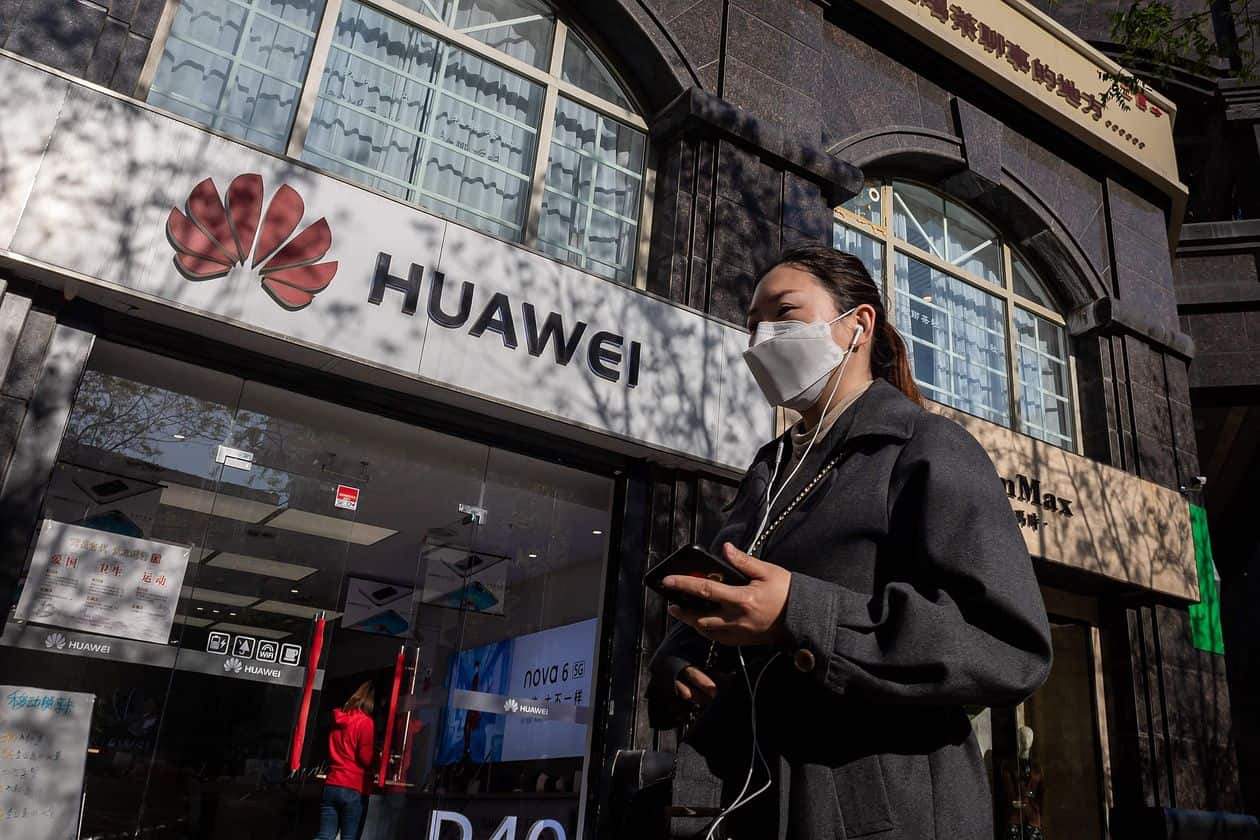Star-Studded Coronavirus Panel Canceled After Flak Over Huawei Sponsorship

An effort by Huawei Technologies Co. to dip its toe into the stormy waters of a U.S. political debate backfired after organizers canceled a star-studded online panel sponsored by the Chinese company to discuss the coronavirus and its impact on minority communities.
The webinar, organized by the National Association of Black Journalists, was titled “The Rise of Misinformation,” and had billed musician and entrepreneur will.i.am and CNN host Van Jones among panelists set to address the issue of false information about the pandemic and its effect on minority groups. Huawei had been signed on as a sponsor of the event, the journalist group said.
But on Tuesday the association scrapped the event as it came under fire online, including from Sen. Tom Cotton, the Arkansas Republican who has attacked China’s behavior in the pandemic.
Some of the panelists said they hadn’t realized Huawei was a sponsor and wouldn’t have agreed to take part if they had known.
The NABJ said the panel, which had been scheduled for Wednesday, had become a “distraction from other priorities” and the event had “come under attack” for Huawei’s involvement.
The backlash erupted after Huawei’s U.S. subsidiary posted a tweet promoting the online panel and encouraging its followers to register, saying “#misinformation on #COVID19 is hitting African-American, Asian, Hispanic, rural & low-income Americans hard.” The NABJ had promoted the event on its website without mentioning Huawei.
The now-deleted Huawei tweet provoked a torrent of responses, including some accusing the Chinese company of exploiting a heated U.S. political issue, while others criticized the journalist group for accepting sponsorship from a Chinese company accused by the Trump administration of being a national security threat.
Sen. Cotton called the event “clear political interference by the Chinese Communist Party,” in a post on his Twitter account.
Huawei said it was disappointed that the event was canceled, saying “we lament the loss of the panel’s voice at a time when misinformation has proven to cause irreparable damage.”
It disputed that panelists were unaware of its sponsorship, saying that the NABJ had told the panelists of its involvement before the company had publicized the event.
Kyle Olbert, an independent human-rights researcher in Washington who opposed the event online, said it was incredible that Huawei would sponsor such a panel, saying it was untruthful about its ties to the Chinese government. “I applaud the NABJ for canceling this online event,” he said. Huawei denies having ties to the Chinese government.
Mr. Jones said he had agreed to participate in the panel without knowing of Huawei’s involvement. “Glad NABJ canceled; I wouldn’t have participated,” he tweeted.
Another slated panelist, physician Ebony Jade Hilton, said she only learned of Huawei’s involvement after the Chinese company promoted the event on Twitter. “The event was quickly withdrawn once this information was alerted,” she said.
Will.i.am couldn’t be reached for comment. A spokeswoman for Mr. Jones declined to comment.
The NABJ said it hadn’t accepted any funding from Huawei, and no one from the Chinese company was to appear on the panel.
When asked whether the association had notified the panelists about Huawei’s involvement, NABJ Executive Director Drew Berry said that “we will not be drawn into a dispute regarding this matter. We look forward to having these talented and esteemed individuals on future panels.”
Huawei is the world’s largest maker of telecommunications equipment and the No. 2 vendor of smartphones. U.S. officials have long said its products could be used to conduct espionage by Beijing. Huawei maintains it is a privately held company that operates independently of the Chinese state, and has challenged the U.S. to offer evidence of any case of cyber espionage.
U.S. prosecutors have charged Huawei and two of its U.S. subsidiaries with racketeering conspiracy and conspiracy to steal trade secrets, in an indictment unsealed in February, and prosecutors last year indicted Huawei on charges of technology theft and evading U.S. sanctions on Iran. The company has denied the charges.
The company has long been a sponsor of events, sports teams and technology conferences around the world, including Wall Street Journal conferences.
Huawei’s involvement in the planned event on misinformation marked a foray by the company into a subject that has deeply divided Americans. Critics of President Trump have accused him of spreading misleading information about the virus, including speculating at an April press conference about treatments such as light or disinfectant. After the remarks drew widespread criticism, Mr. Trump said he was asking reporters a question sarcastically.
China and the U.S. have accused each other of spreading misinformation about the origins of the novel coronavirus, with U.S. Secretary of State Mike Pompeo saying there is evidence the virus originated in a Chinese laboratory and a Chinese foreign-ministry spokesman saying it originated with the U.S. military.
The pandemic has infected more than 4.2 million people world-wide, including more than 1.3 million in the U.S., where more than 82,000 have died, according to data compiled by Johns Hopkins University.
Photo: A tweet by Huawei’s U.S. subsidiary promoting an online panel on misinformation sparked a backlash. - NICOLAS ASFOURI/AGENCE FRANCE-PRESSE/GETTY IMAGES











